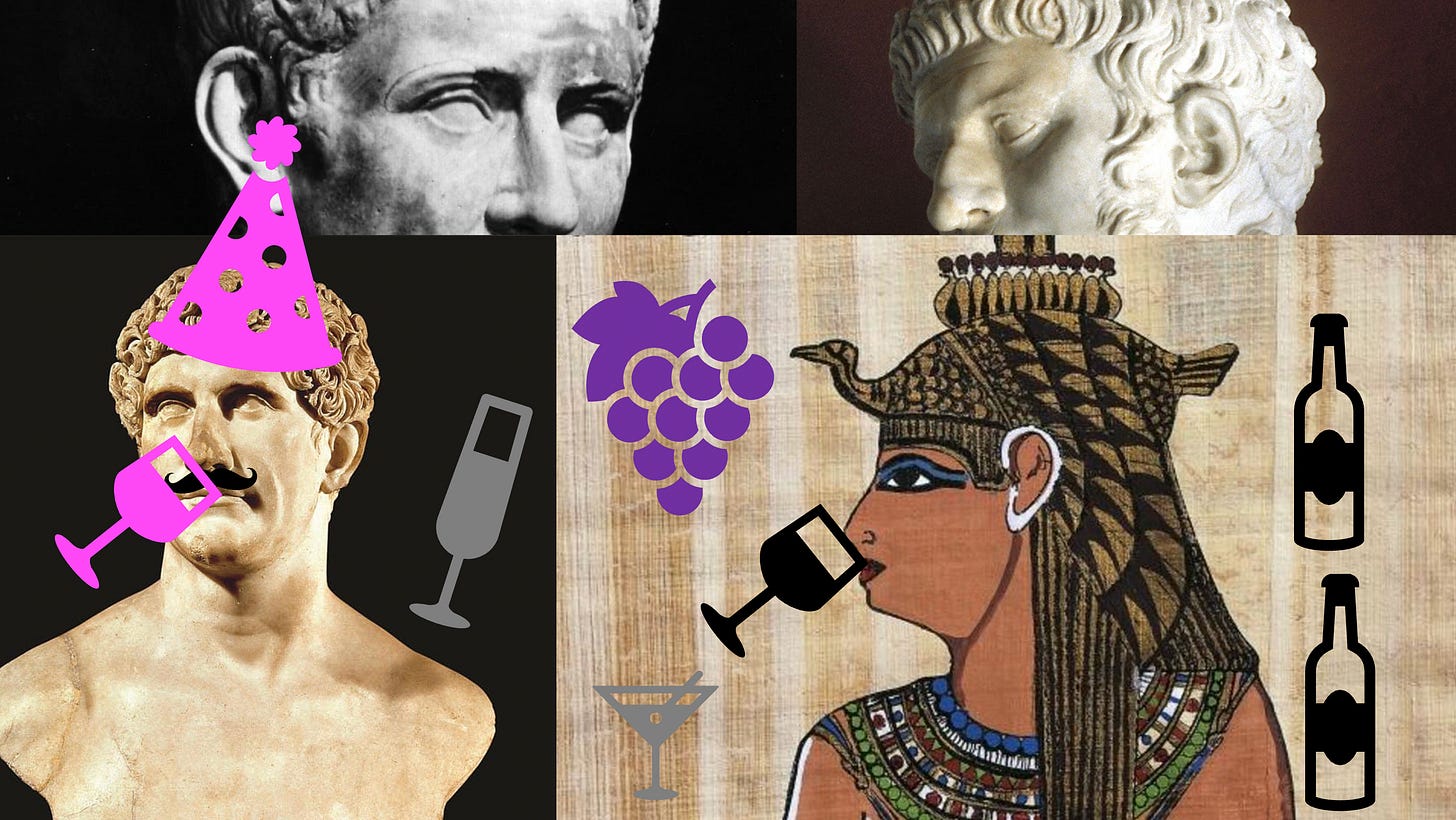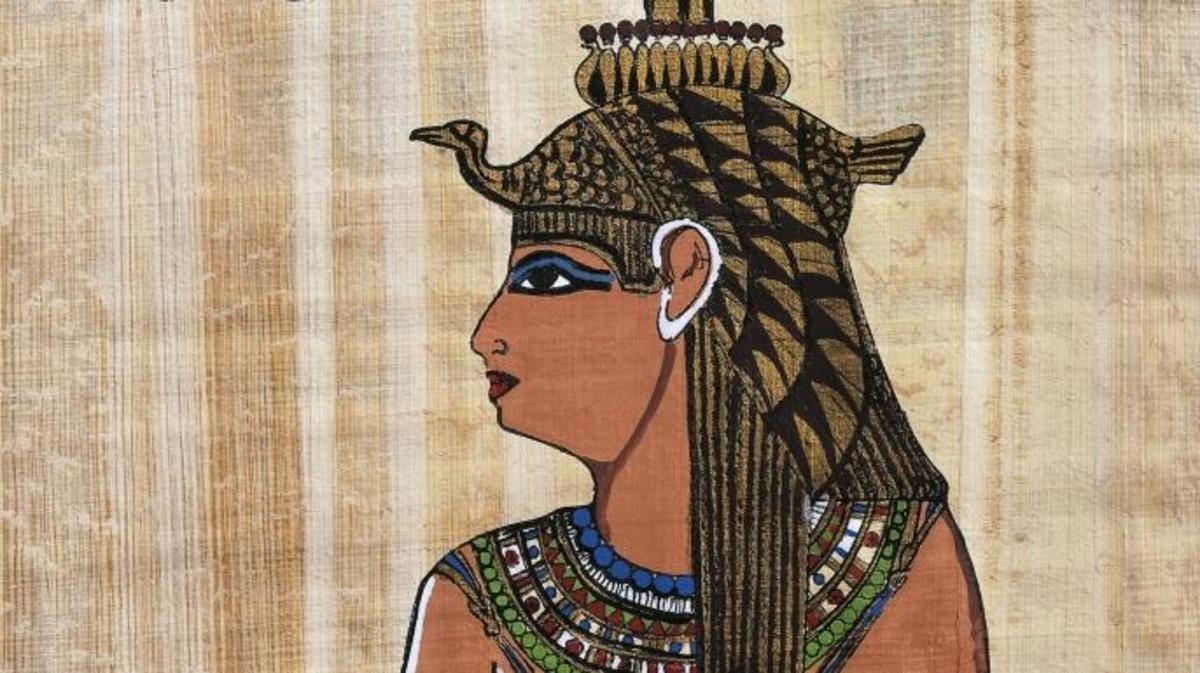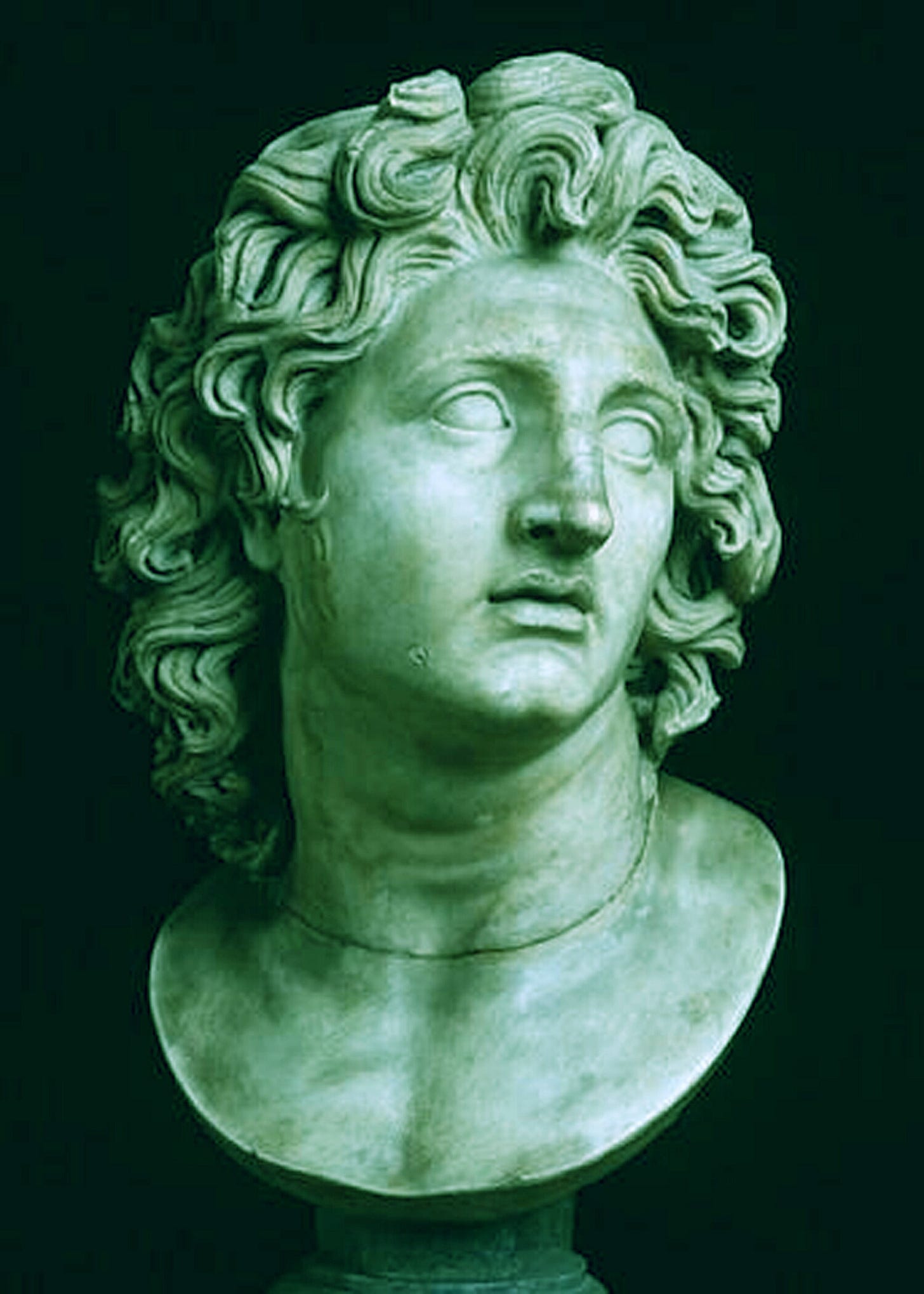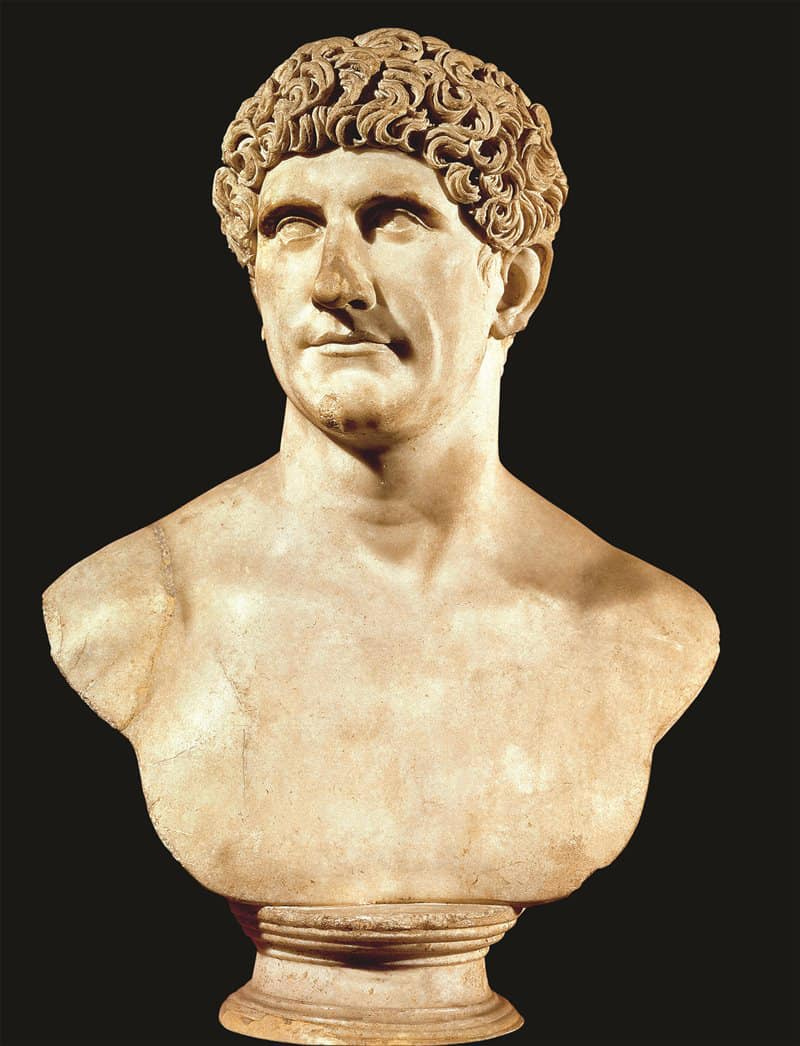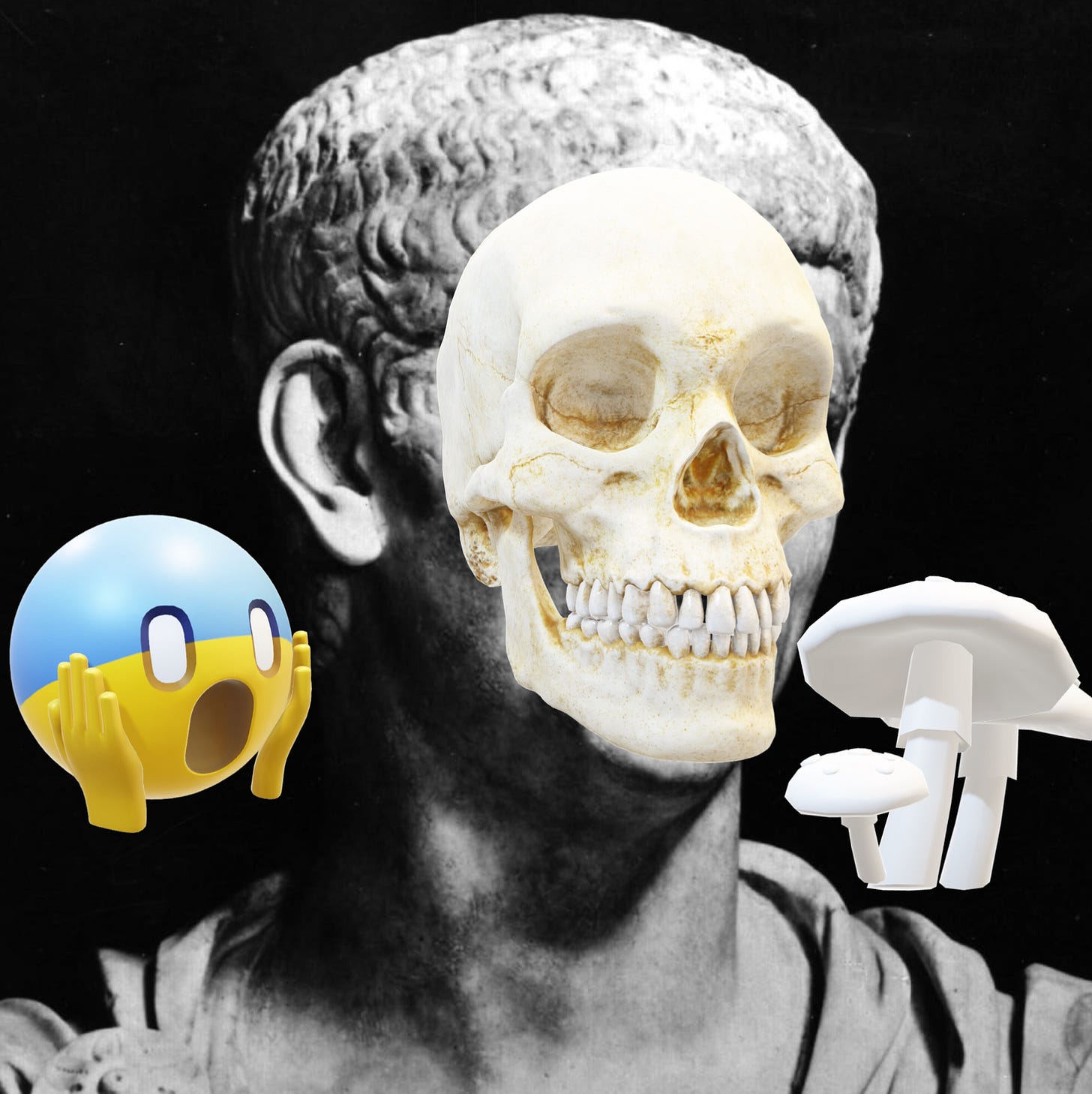Clockwise from top left: Claudius, Nero, Cleopatra, Mark Antony.
Make no mistake—the ruling class loves getting faded, and they have for millennia. Drunken elite have maintained power since the times of Kemet (a.k.a. ancient Egypt). Today I’ll share some notes on intoxication among the ruling class in ancient Egypt, Greece, and Rome. As you’ll see, there was certainly no shortage of it.
Kemet [Ancient Egypt]
The use of alcohol to the point of inebriation among the upper class goes back to Kemet, or ancient Egypt. In Kemet, wine was the preferred drink of the elite. Beer was seen as a working-class drink. Regardless of the beverage, drunkenness was socially accepted in Kemet for rich and poor alike. Historians Jared Krebsbach and Eric Lambrecht write that “drunkenness was a sign of wealth and abundance” in Kemet.1 “Moderation,” they suggest, was “frowned upon.” Ancient depictions show Egyptian “royals” and “high officials” drinking wine while listening to music and watching nude dancers.2
Cleopatra
The legendary queen of Egypt Cleopatra still permeates popular culture to this day. Known for her intelligence, skillful political strategy, and physical beauty, Cleopatra belonged to a Greek regime that ruled in Egypt before it was seized by the Roman empire. She also loved a good party.
In 41 BCE, Cleopatra formed a private drinking club with her then-lover Mark Antony. Known as “the Inimitable Livers,” the group regularly indulged in alcohol-fueled debauchery.3 [I can’t help but wonder—is the monicker supposed to refer to people who “live it up,” or to the bodily organ that soaks it up?]
Sometimes their drinking parties evolved into late-night prank sessions, as Cleopatra and Mark Antony were said to have enjoyed sneaking around Alexandria at night dressed in disguises and pull practical jokes on random civilians.
Ancient Greece
The ancient Greeks adopted many of the cultural norms of Kemet. Among them: drunk rulers. As in ancient Egypt, the use of alcohol was generally viewed favorably in ancient Greece. Last week we explored what Plato thought of the use of alcohol (he was a fan—though he also warned that excessive drinking could give rise to “the tyrannical man”). His student, Aristotle, is said to have composed a treatise on the subject dubbed On Drunkenness, but unfortunately there are no known surviving copies.
Aristotle was well-regarded in his day, so much so that he was selected to tutor a young Alexander III of Macedonia, who would become known to history as Alexander the Great.
Alexander the Great
Alexander the Great is most known for his prowess in empire-building, warfare, and politics. But he is also known to have been a fond lover of wine. He got drunk regularly, as did many of those around him. Historians have suggested that his drunkenness likely, if inadvertently, played a role in his war strategy. As an example, they point to the sacking and burning of Persepolis in 330 BCE. The decision to burn the city to the ground (which even by Alexander the Great’s standards was a bit harsh) was made while Alexander was drunk on victory—but also on wine.4
On another occasion, a drunken Alexander, seething with rage toward a political colleague, started what at first seemed to be a food fight but then rapidly escalated to deadly violence. Alexander survived the incident. His colleague did not.
Ancient Rome
The theme of intoxicated emperors continued into the age of the Roman Empire. And Roman emperors, it seemed, had a taste for the exotic. For they included in their stashes numerous substances in addition to wine, some of which may raise eyebrows today.
Marcus Aurelius
One of the more well-known and well-liked of the Roman emperors, Marcus Aurelius ruled Rome when it was at or near the height of its power. Throughout his rulership, he was known to use daily a drug which consisted of a motley variety of ingredients. Known as theriac, the drug was then considered a “universal antidote” and was prescribed to Marcus Aurelius by the famous Roman physician Galen (and at least one other doctor).5
So, what was theriac made of? The concoction contained dozens of ingredients and the recipe changed through the years. It is thought to have included viper flesh—an ingredient added during the reign of Mithridates Eupator, a king of Pontus. But we know for certain that by the time Marcus Aurelius added the drug to his daily regimen, theriac included opium among its ingredients.6
At least one historian has suggested that the emperor’s daily dose of opium may have been a factor in his likable persona, although such an idea would be difficult if not impossible to prove definitively.
Mark Antony
Like Alexander the Great, Mark Antony was known for his bibulous nature. On one occasion he defied social customs by drinking publicly from a soldier’s cup, a move that simultaneously generated respect among his troops and ire among his fellow politicians.7
He was also known to ride a chariot while dressed up as the Roman god Bacchus (the god of wine and ecstasy, known among the Greeks as Dionysus) and brandish an overflowing cup of wine. He is thought to have written a book about his love of wine which—like Aristotle’s On Drunkenness—has unfortunately not survived the passage of time.
More disturbingly, Mark Antony also reportedly enjoyed viewing the dismembered body parts of his conquered enemies while he dined and drank copious volumes of wine.8
And of course, Mark Antony was also a lover and drinking buddy of Cleopatra’s.
Tiberius
Tiberius first gained a reputation for his love of drink as a young lad in the Roman army. He was known to drink his wine unmixed (most wine in those days was diluted with water; drinking “unmixed” wine was considered an indulgence). When he later became Emperor, he preferred his political colleagues to also be heavy drinkers. The royal lush drank til his death.9
Claudius and Nero
A notorious glutton, Claudius was known to drink to the point of passing out at the table. His peers reportedly took advantage of such opportunities to play physical pranks on him.
As emperor, Claudius was not especially well-liked. He ultimately came to a rather bizarre and tragic end. His wife Agrippina and their son Nero teamed up to murder the emperor with poisonous mushrooms.10
Nero had already developed the habit of getting sloshed and then roaming around looking for victims to pick fights with while still a teenager. After his father’s fungal fatality, Nero became emperor of Rome. He continued to drink during his time as emperor. Emperor Nero is even suspected to have broken the ancient Roman equivalent of DUI laws, when he fell off his chariot, it is thought due to drunkenness.11
But perhaps Nero’s strangest habit was not alcohol, but goat excrement. You read that right. Emperor Nero drank goat poop.
According to Pliny, the ancient Roman historian, Emperor Nero loved to consume a beverage that was actually relatively popular in Rome at the time which consisted of goat dung boiled in vinegar and mixed into drinks.12 Yuck! The ancient Romans believed that boiled and powderized goat s**t gave them a boost of energy. It was apparently a favorite among Charioteers. Nero did like to ride his chariot, after all. Perhaps he fell off his chariot because he was hopped up on a particularly potent batch of poop. We may never know for sure.




